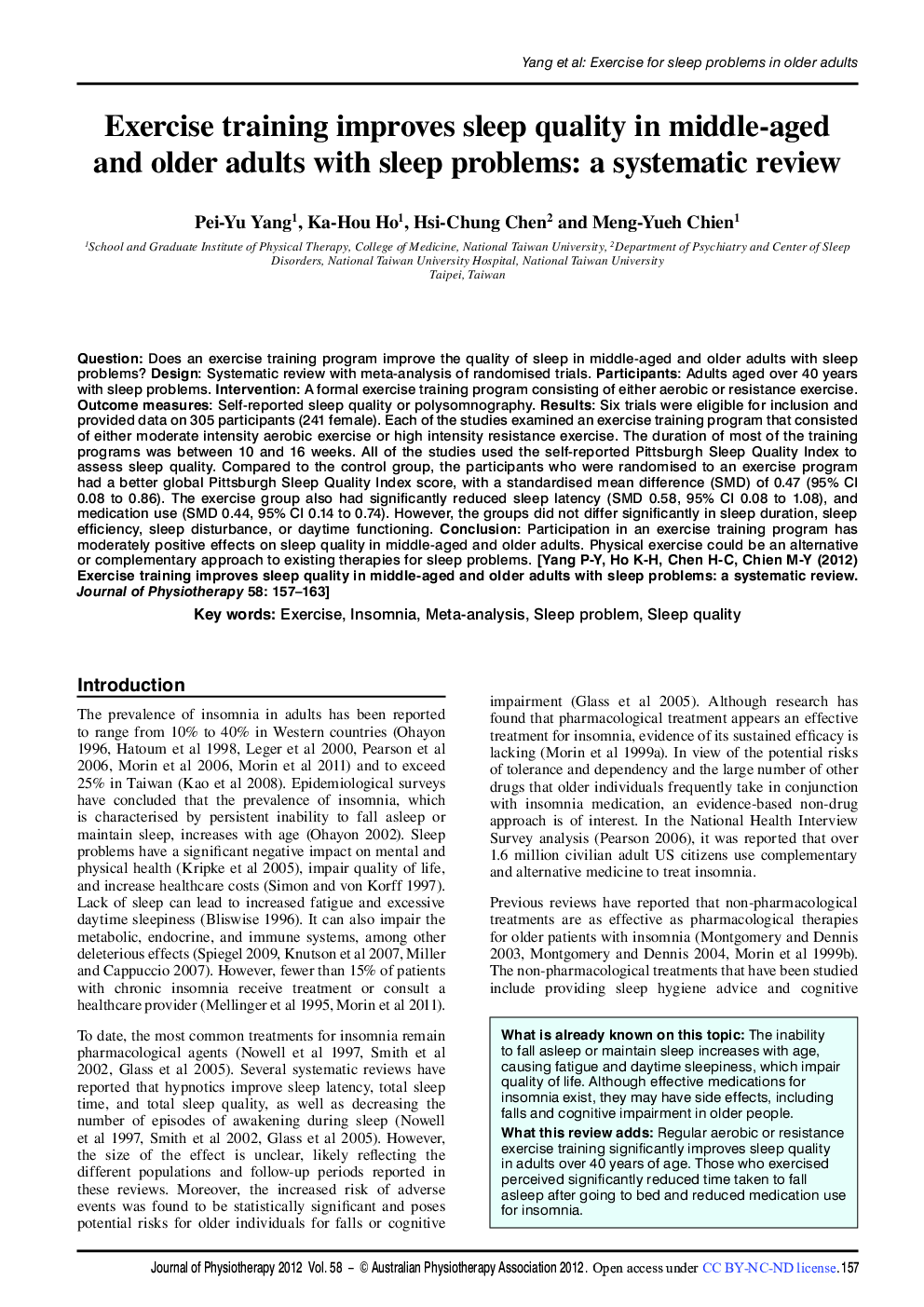| Article ID | Journal | Published Year | Pages | File Type |
|---|---|---|---|---|
| 5864266 | Journal of Physiotherapy | 2012 | 7 Pages |
QuestionDoes an exercise training program improve the quality of sleep in middle-aged and older adults with sleep problems?DesignSystematic review with meta-analysis of randomised trials.ParticipantsAdults aged over 40 years with sleep problems.InterventionA formal exercise training program consisting of either aerobic or resistance exercise.Outcome measuresSelf-reported sleep quality or polysomnography.ResultsSix trials were eligible for inclusion and provided data on 305 participants (241 female). Each of the studies examined an exercise training program that consisted of either moderate intensity aerobic exercise or high intensity resistance exercise. The duration of most of the training programs was between 10 and 16 weeks. All of the studies used the self-reported Pittsburgh Sleep Quality Index to assess sleep quality. Compared to the control group, the participants who were randomised to an exercise program had a better global Pittsburgh Sleep Quality Index score, with a standardised mean difference (SMD) of 0.47 (95% CI 0.08 to 0.86). The exercise group also had significantly reduced sleep latency (SMD 0.58, 95% CI 0.08 to 1.08), and medication use (SMD 0.44, 95% CI 0.14 to 0.74). However, the groups did not differ significantly in sleep duration, sleep efficiency, sleep disturbance, or daytime functioning.ConclusionParticipation in an exercise training program has moderately positive effects on sleep quality in middle-aged and older adults. Physical exercise could be an alternative or complementary approach to existing therapies for sleep problems.
